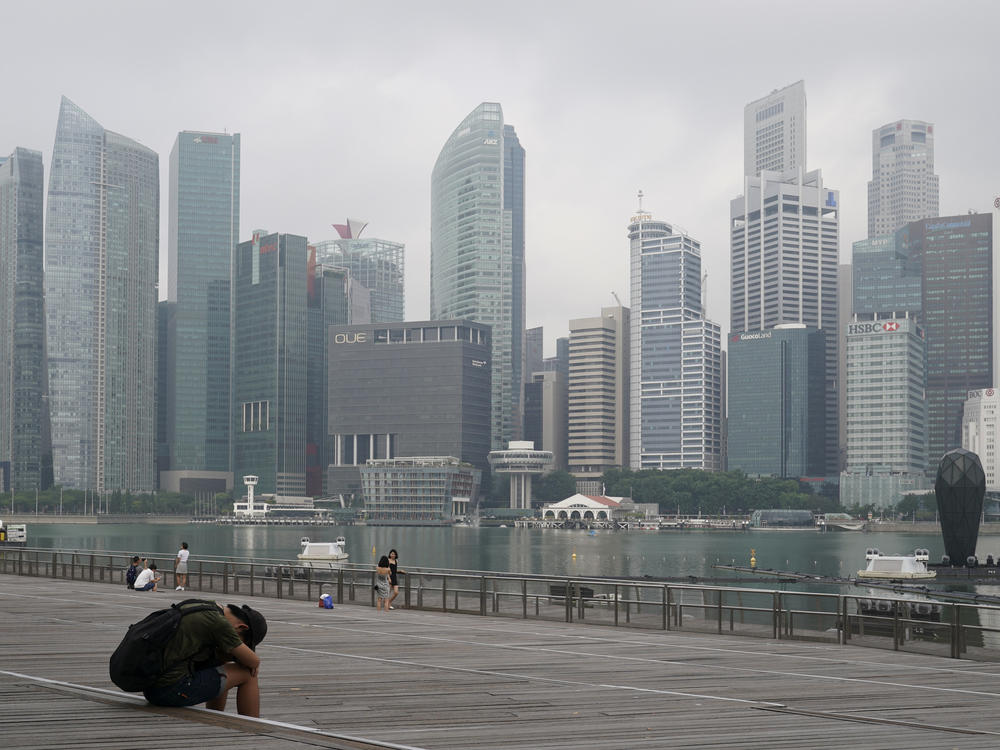Section Branding
Header Content
Singapore set to execute first woman in nearly 20 years, rights groups say
Primary Content
KUALA LUMPUR, Malaysia — Singapore executed a man Wednesday for drug trafficking and is set to hang a woman Friday — the first in 19 years — prompting renewed calls for a halt to capital punishment.
Mohammed Aziz Hussain, 56, was hanged at Singapore's Changi Prison and has been buried, said activist Kirsten Han of Transformative Justice Collective, which advocates for abolishing the death penalty in Singapore. A citizen of the city-state, he was sentenced to death in 2018 for trafficking around 50 grams (1.75 ounces) of heroin, Han said.
Saridewi Djamani, a 45-year-old Singaporean woman, is due to be hanged Friday after she was convicted and sentenced in 2018 for trafficking around 30 grams (1.05 ounces) of heroin, the group and other human rights organizations said. Han said the last woman known to have been hanged in Singapore was 36-year-old hairdresser Yen May Woen, also for drug trafficking, in 2004.
"Singaporean authorities must immediately stop these blatant violations of the right to life in their obsessive enforcement of misguided drug policies," Adilur Rahman Khan, secretary-general of the International Federation of Human Rights, said in a statement.
If Djamani's is executed as planned, Singapore will have executed 15 people for drug offenses since it resumed hangings in March 2022, an average of one execution every month, Transformative Justice Collective, Amnesty International and seven other groups said in a joint statement.
Anyone — citizens and foreigners alike — convicted of trafficking more than 500 grams (17.64 ounces) of cannabis and 15 grams (0.53 ounces) of heroin faces the mandatory death penalty.
Human rights groups, British business mogul Richard Branson and the United Nations have urged Singapore to halt executions for drug-related offenses as increasing evidence shows the death penalty is ineffective as a deterrent. But Singapore authorities insist that all prisoners get due process of law and that capital punishment remains key to helping halt both drug demand and supply.
The joint statement by Transformative Justice Collective and other groups noted that Law Minister K. Shanmugam reportedly acknowledged in a 2022 interview that Singapore's harsh policy on drugs has not led to the arrest of the so-called drug kingpins.
"Instead of disrupting drug cartels ... the government of Singapore deliberately retains capital drug laws that, in practice, operate to punish low-level traffickers and couriers, who are typically recruited from marginalised groups with intersecting vulnerabilities," the statement said.
The groups said Singapore is out of step with the global trend of more countries moving away from capital punishment. Neighboring Thailand has legalized cannabis while Malaysia ended the mandatory death penalty for serious crimes this year. The groups urged Singapore to halt all executions and instead pursue effective measures to humanely address drug trafficking in the country.
Copyright 2023 NPR. To see more, visit https://www.npr.org.

